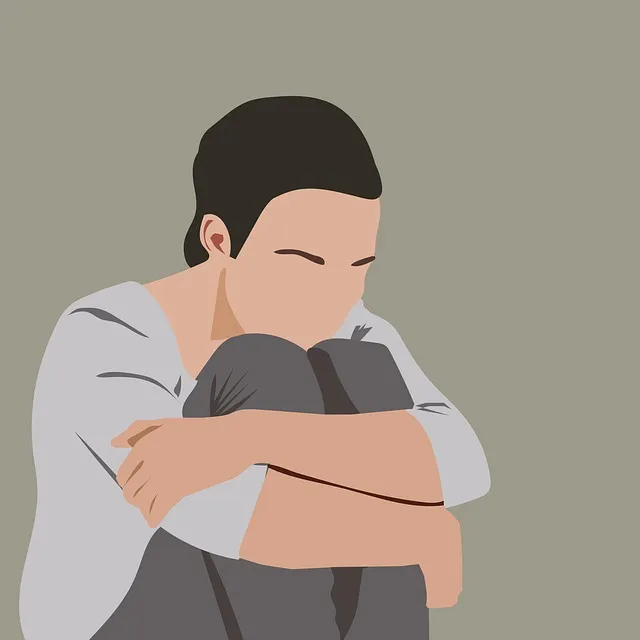The Kaiser Permanente mental health centers in Parker utilize group facilitation as a powerful support tool, creating safe spaces for individuals seeking wellness. Facilitators employ Mood Management and Mental Health Education to empower members while reducing stigma. Through Community Outreach Programs, these centers expand their reach, fostering connections that enhance overall well-being, as reflected in positive Kaiser Permanente mental health center reviews Parker. This collaborative approach combines open discussions, activities like journaling exercises and podcast series development, along with public awareness campaigns, encouraging accountability, inspiration, and practical tools for healing and growth.
Mental wellness group facilitation plays a pivotal role in fostering healing and growth within supportive community settings. This article explores effective techniques employed at Kaiser Permanente Mental Health Center to enhance group therapy sessions. We delve into the definition and significance of group facilitation, highlighting its benefits for individual recovery. Through analyzing Kaiser Permanente mental health center reviews by Parker, we assess the impact of active listening, open dialogue promotion, art therapy, and mindfulness exercises on participant well-being and satisfaction. Learn how feedback drives continuous improvement in these transformative programs.
- Understanding Group Facilitation for Mental Wellness
- – Definition and significance of group facilitation in mental health support
- – Benefits of group settings for individual healing and growth
Understanding Group Facilitation for Mental Wellness

Group facilitation plays a pivotal role in enhancing mental wellness, especially within community-based settings like Kaiser Permanente mental health centers in Parker. These centers often employ facilitators who guide and support individuals navigating various mental health challenges. Facilitation techniques go beyond merely hosting meetings; they involve creating an inclusive environment where every participant feels valued and empowered to share their experiences.
Effective group facilitation for mental wellness involves a nuanced approach, including Mood Management strategies that help individuals regulate their emotions. Mental Health Education Programs Design tailored for these groups educate members about various conditions, fostering empathy and reducing stigma. Additionally, Community Outreach Program Implementation can expand the support network, inviting local community members to participate, thereby creating a sense of belonging and enhancing overall well-being.
– Definition and significance of group facilitation in mental health support

Group facilitation plays a pivotal role in enhancing mental wellness support, offering a dynamic and collaborative approach to care. It involves skillfully guiding small groups of individuals with shared experiences or challenges, fostering an environment where they can openly discuss their struggles, exchange insights, and provide mutual support. This technique is particularly effective at the Kaiser Permanente mental health center in Parker, where trained facilitators create safe spaces for individuals to navigate their mental health journeys together.
Through group facilitation, participants not only gain access to diverse coping strategies but also develop essential communication skills that empower them to manage stress effectively. Engaging in group discussions, sharing personal stories, and learning from peers contribute to the development of robust coping skills, ultimately enhancing resilience and overall well-being. This supportive network is particularly beneficial for those seeking Stress Reduction Methods, as it provides a sense of community and understanding beyond individual therapy sessions.
– Benefits of group settings for individual healing and growth

Group settings offer a powerful environment for individual healing and growth, as they facilitate a sense of community and shared experiences. At Kaiser Permanente mental health centers in Parker, for instance, group facilitation techniques have proven effective in fostering connections among individuals seeking support. In these spaces, people can openly discuss their challenges and triumphs, benefiting from the collective wisdom and understanding of others going through similar struggles. This not only provides a supportive network but also encourages accountability and inspiration.
Mental wellness group facilitation goes beyond simple conversation. Activities like Mental Wellness Journaling Exercise Guidance and even the production of Mental Wellness Podcast Series can be incorporated to enhance engagement and learning. Additionally, Public Awareness Campaigns Development within these groups can help break down stigmas and encourage more open dialogues about mental health. This multi-faceted approach ensures individuals not only receive practical tools for managing their mental wellness but also experience a profound sense of belonging and empowerment.
Group facilitation plays a pivotal role in enhancing mental wellness, as evidenced by the positive outcomes seen in many Kaiser Permanente mental health center reviews Parker. The shared experiences and supportive environment in group settings foster healing and personal growth, making it an essential component of comprehensive mental health care. By leveraging these techniques, mental health professionals can create a dynamic tapestry of support that empowers individuals on their journey to well-being.






